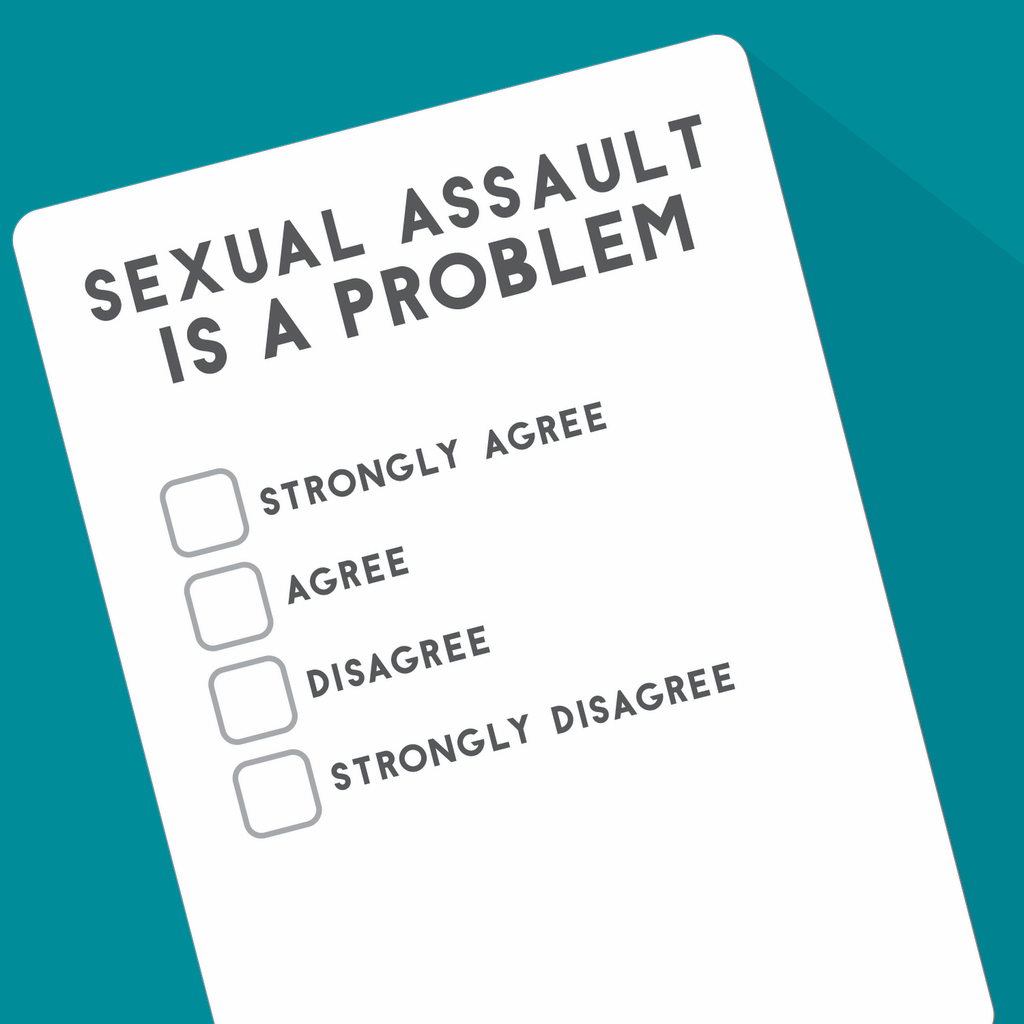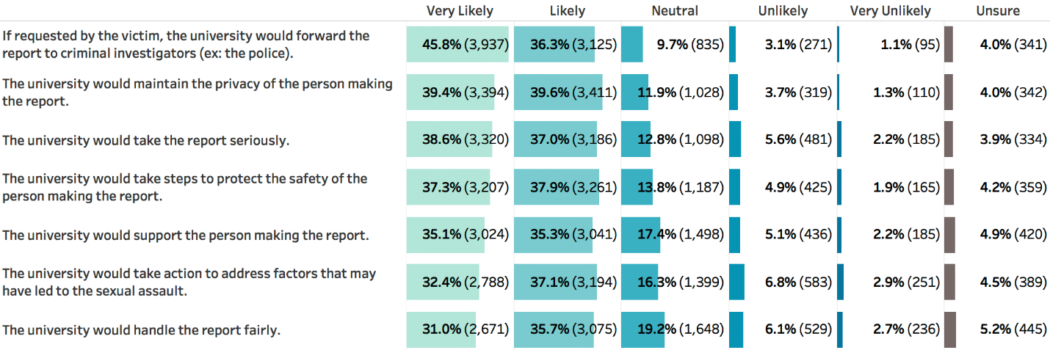More than half of USU students don’t know how to report sexual assault, survey says
Data from Utah State University’s Campus Climate Survey reveals more than half of Utah State University students don’t know how to report sexual misconduct.
According to the survey data, which asks students questions about their experiences with sexual misconduct — specifically nonconsensual sexual contact — only 5 percent of victims said they filed formal complaints with the university.
“We need to improve communication to students on how to file a report and how that works,” said Sexual Misconduct Information Coordinator Amanda DeRito.
What percentage of #SexualMisconductSurvey respondents reported experiencing nonconsensual sexual contact since arriving at USU?
— Utah Statesman 📰 (@UtahStatesman) September 26, 2017
She added that students need to know where to find services to help them and remove the barriers for students to access those services.
USU is on the lowest side of reporting, according to the study.
[polldaddy poll=9838928]
In a nationwide study conducted in 2015 by the Association of American Universities, 27 schools said students who had experienced sexual misconduct reported to officials between five and 28 percent of cases.
“Most of the information we had until this survey was anecdotal,” DeRito said. “We know who is being seen by SAAVI (Sexual Assault and Anti-Violence Information Center) or who is being seen by CAPS (Counseling and Psychological Services), but we didn’t have a sense of what was going on in the greater community. Now we have a sense of that — we have a way to measure if we are improving.”
According to the data, 10,502 students responded to the survey, which was sent to all USU students in April. This represents 45 percent of the USU population. Of those responses, 93 percent of USU students feel they are safe on campus when it comes to nonconsensual sexual contact. 7.4 percent of students reported they have been the victim of nonconsensual sexual contact since arriving at USU.
“Because of this survey we are able to redirect resources across campus in order to help students,” said Eric Warren, USU media relations director. “It became pretty clear that many students don’t know what services are out there for them if they’re victims.”
Resources for sexual misconduct victims across campus have been increased in the past year, due to high-profile cases and a concern for student well-being, DeRito said.
“What we’re doing is looking at how we can best serve students,” she said.
USU has a variety of resources available to meet different student needs. These include reporting to the university, reporting to law enforcement or simply seeking counseling services provided by SAAVI or CAPS, or Counseling and Psychological Services, located in the Taggart Student Center.
“The reason we have all these resources is because everyone processes it differently,” Warren said. “Saying ‘everyone should do this first’ would not be helpful, so providing options is our best way to go about it.”
DeRito agreed, adding “If a student just needs someone to talk to and no one else should find out, they need to go to one of our confidential resources, and that would be SAAVI…They provide advocacy and counseling, and will actually walk through the process with someone.”
SAAVI provides information, counseling and assistance to victims of violent or non-violent sexual misconduct and will keep all victim information confidential. Located in the Student Health and Wellness Center 119, SAAVI can be a vital resource to a student dealing with sexual assault.
“One of the places where people can enter this is through the police department. The USU police department will also refer you to all these different resources as well,” Warren said.
At any point where a victim tells a university official or employee, they will be guided through the reporting process and can remain anonymous, if desired.
DeRito said it is important for students to know the steps, as no one expects unwanted sexual contact to happen to them.
“Just because you may not go to a party, or may not drink, you still need to think about these things.”
—carter.moore@aggiemail.usu.edu
See full report here:
2017 CAMPUS CLIMATE SURVEY ON SEXUAL MISCONDUCT by Utah Statesman on Scribd




